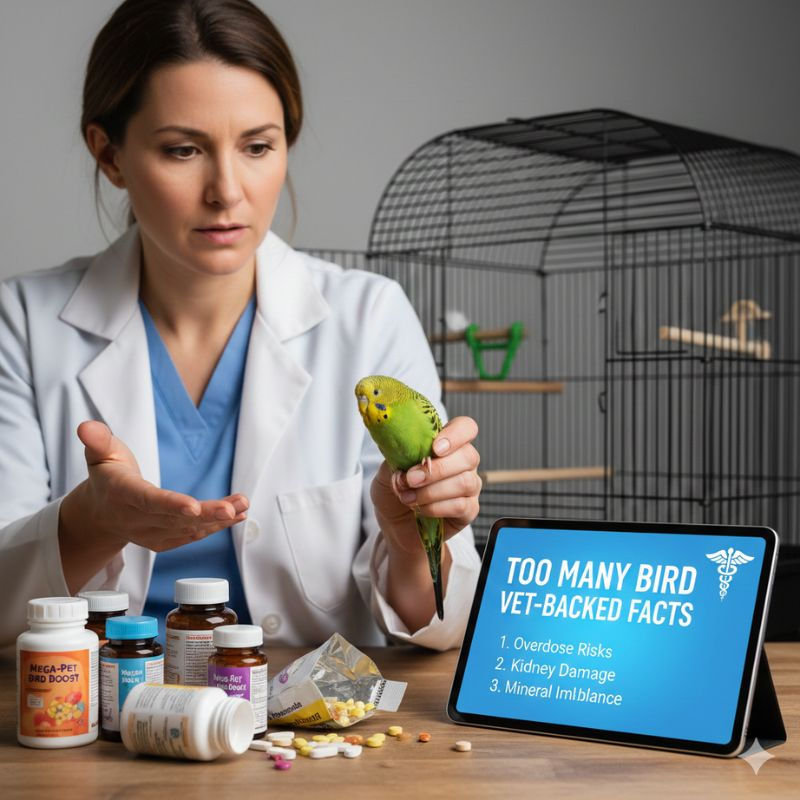What Do Baby Birds Eat? Everything You Need to Know About Nestling Nutrition
- petperchlove
- Aug 28, 2025
- 3 min read

Baby birds are fascinating creatures, and caring for them requires understanding their specific dietary needs. Whether you’ve found a nestling in your backyard or are raising pet birds at home, knowing what do baby birds eat is essential for their growth and survival. From the first few days after hatching to the time they’re ready to fledge, their diet changes dramatically. Providing the right nutrition ensures they develop strong feathers, healthy bones, and a robust immune system.
In the wild, parent birds carefully select the right combination of insects, seeds, and soft fruits to feed their young. At home, ensuring that baby birds receive a diet similar in nutrients is critical. Using high-quality bird food tailored for young birds provides the essential vitamins, proteins, and minerals they need during their growth stage.
Understanding Nestling Nutrition
Nestlings are highly dependent on their parents, or in some cases, on human caregivers, for food. Their tiny bodies have high energy demands, and they need frequent feedings throughout the day. The main components of a healthy diet for baby birds include:
Protein-Rich Foods – Proteins are vital for muscle development and feather growth. In the wild, this comes from insects, larvae, and small invertebrates. For pet birds, specialized pet bird food formulas often provide high protein content suitable for nestlings.
Soft Fruits and Vegetables – Soft, ripe fruits and finely chopped vegetables are excellent sources of vitamins and minerals. These foods aid in overall growth and help maintain a healthy digestive system.
Grain and Seed Mixtures – As baby birds grow, they gradually start eating small amounts of seeds. Using a high-quality wild bird food mix ensures they get the right balance of nutrients similar to what they would naturally forage.
Hydration – Nestlings get most of their water from their food, but in dry conditions, lightly moistened food can prevent dehydration.
Feeding Schedule and Techniques
Baby birds need frequent feedings, typically every 15–20 minutes during daylight hours in the first week. As they grow, the intervals lengthen, and the quantity of food per feeding increases. Using proper feeding techniques is essential to prevent aspiration or digestive issues:
Hand-Feeding – For orphaned or rescued birds, specialized hand-feeding formulas and utensils are necessary.
Gradual Transition – Slowly introducing seeds and solid foods helps nestlings adapt without digestive stress.
Observation – Monitor their growth, feather development, and energy levels to adjust diet accordingly.
Signs of a Healthy Baby Bird
Understanding whether a nestling is thriving is as important as providing the right food. Healthy baby birds typically exhibit:
Smooth, growing feathers
Bright eyes and active movement
Regular begging and eating behavior
Proper weight gain according to species
Any deviation may indicate nutritional deficiencies or illness, requiring immediate attention from a veterinarian or bird care expert.
Common Mistakes to Avoid
Caring for baby birds can be challenging, and mistakes in feeding can have serious consequences:
Feeding inappropriate foods such as bread, milk, or human snacks
Overfeeding or underfeeding
Ignoring temperature and hydration needs
Using low-quality or unsuitable bird food
Correct knowledge and preparation are key to nurturing strong and healthy birds.
FAQs About Baby Bird Nutrition
Q1: Can I feed a baby bird store-bought bird seed?
Yes, but only after they have matured enough to handle solid food. Initially, they need high-protein soft foods or specialized pet bird food formulas.
Q2: How often should I feed a baby bird?
Newly hatched birds require feeding every 15–20 minutes during daylight. As they grow, feeding intervals can gradually increase.
Q3: Can wild bird food be used for baby birds?
Yes, but it’s best introduced gradually. High-quality wild bird food mimics natural diets and provides essential nutrients for growing nestlings.
Q4: How do I know if my baby bird is getting enough nutrition?
Healthy growth, smooth feather development, bright eyes, and consistent energy levels indicate proper nutrition. Any sudden changes warrant consultation with an avian expert.
Q5: Are supplements necessary for baby birds?
While high-quality bird food often contains all necessary nutrients, some species may benefit from additional vitamins or minerals, especially if under human care. Consult a veterinarian for guidance.
Conclusion
Understanding what do baby birds eat is crucial for anyone raising or rescuing nestlings. Providing a proper diet rich in protein, vitamins, and minerals, using high-quality bird food, and monitoring their growth can help ensure baby birds thrive and grow into healthy adults. Whether you’re caring for wild or pet birds, knowledge and careful feeding practices are the keys to their survival and wellbeing.



Comments